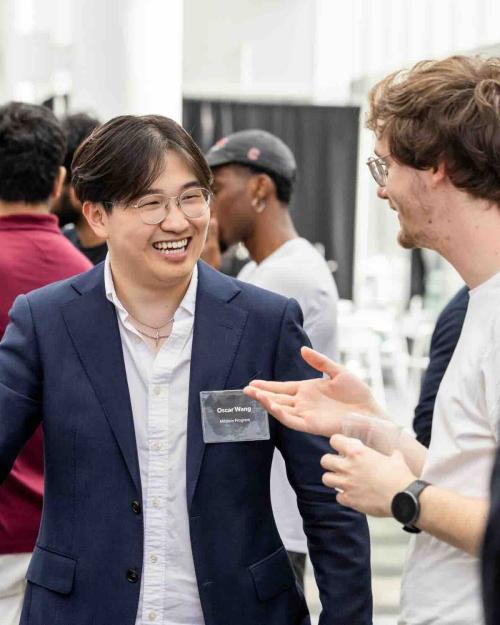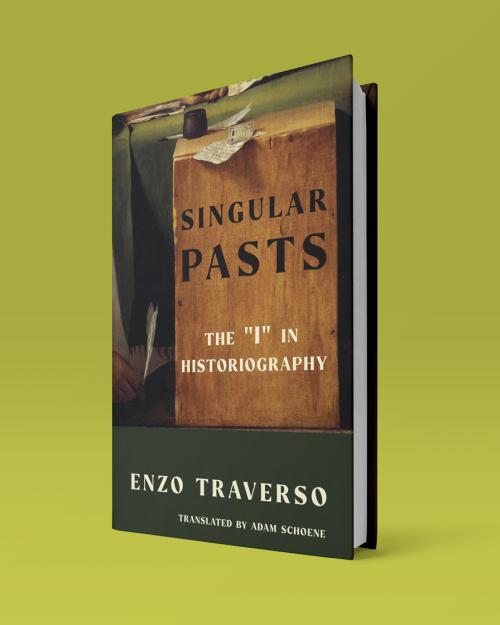From antiquity through about 20 years ago, historians were invisible in their writing. Thucydides, for example, did not give his own testimony when writing about the Peloponnesian Wars in the fifth century, B.C., despite having participated as an Athenian general.
“He wanted to write as a historian and reconstruct the conflict through objective description of the facts, an approach that required third-person narration,” writes Romance studies scholar Enzo Traverso in “Singular Pasts: The ‘I’ in Historiography” (translated by Adam Schoene, Ph.D. ’19). And for centuries, history scholars followed suit, he said – until very recently.
In the book, Traverso, the Susan and Barton Winokur Professor of the Humanities in the College of Arts and Sciences, critiques a new trend in historical writing, in which historians place themselves in their books, framing their accounts of history as first-person investigations and revealing emotional ties to their subjects. While this approach gives historical writing a literary flavor, Enzo argues, it also reflects a contemporary habit of perceiving and representing the past through an individual lens.
The College of Arts and Sciences spoke with Traverso about the book.
Question: In “Singular Pasts,” you argue that first-person accounts of history mirror habits of thinking in the age of the selfie. What styles were present in historical writing of past eras?
A: We could give a thousand examples because until very recently, until 15 or 20 years ago, history was exclusively written in the third person. This was a basic rule of the discipline. I give examples from historians who, in the 1960s and 1970s, were asked to write about themselves, and they were offended because they thought history writing was incompatible with any claim to subjectivity. Historians were to be as objective as possible, or at least they believed, to be able to avoid any subjectivity.
Now, many historians write in the first person, a major turn. They cannot dismiss their culture, their sensitivities, their identity, or even their political choices when they write about the past. They are still respectful of old rules of historical investigation sources, archives, but they introduce a subjective dimension in their books by describing their inquiry: “I worked in this archive, I uncovered these sources, and these sources uncovered a trouble in myself.” In this way, they can express the emotions they felt by writing their book.
Q: You write that “understanding the past needs both” history and fiction. What might fiction contribute to a reader’s understanding of the past?
A: I think fiction contributes a lot, and film as well. Our view of the past is deeply shaped by novels and movies. Novelists can penetrate the spirit of an age by inventing characters. For example, Vasily Grossman’s “Life and Destiny,” a book of the World War II, or Flaubert on the Revolutions of 1848 or Tolstoy on the Napoleonic Wars in “War and Peace.” This approach to the past is forbidden to scholars – if I write a scholarly book on World War II, I can’t invent characters.
I think this dialectic between fiction and historical scholarship is extremely important for both disciplines. Novelists spend years reading history books, gathering extensive documentation. And maybe unconsciously, many scholars start their books with images from novels and movies in mind.
Q: Are you critical of historical writing that crosses the traditional boundary between historical scholarship and literary narrative?
A: I’m critical, but at the same time, I’m seduced by this new style. Writing in the first person, historians discover the pleasure of writing, which previously was reserved for novelists. Writing in the first person, I think, improves the literary quality of the historical writing. But it’s not just a matter of style.
This new, subjective style is the mirror of an anthropological change in the last decades related to neoliberalism, which is not only a set of economic policies, but also a world view and a way of connecting ourselves to others. Neoliberalism is grounded on competition, and it implies an individual gaze on society and history, as if to say, “I’m alone in looking at the past, so I write a history book describing my personal relationship with the past and its actors.”
In contrast, I view history as a process made by human beings who act collectively. The major historical turns obviously transcend individuals. I think this new, subjective way of writing history marginalizes collective agency. This book is my attempt at rehabilitating the category of “we” instead of “I.”
Q: In the epilogue, you offer a counterexample in the first-person writing of Saidiya Hartman. What is different and significant about this historian’s work?
A: I had already finished the original version of this book [in French] when I discovered the powerful work of Saidiya Hartman. I read her books with passion and great pleasure, and I decided to add an epilogue to the English edition. Her books have a high literary quality, but I was seduced by her capacity to articulate in a fruitful way the collective dimension of making history. Her books navigate between the self and collectivity. Hartman consciously connects her books to, say, the Black Lives Matter movement, with collective moments that are shaping the present. This is my own stance as a scholar. I don’t consider my task to close myself up in Uris Library, however pleasant it is to work in such a beautiful place. I think that to be fruitful scholars, we must be open to the societies surrounding us.
Read the story in the Cornell Chronicle.




